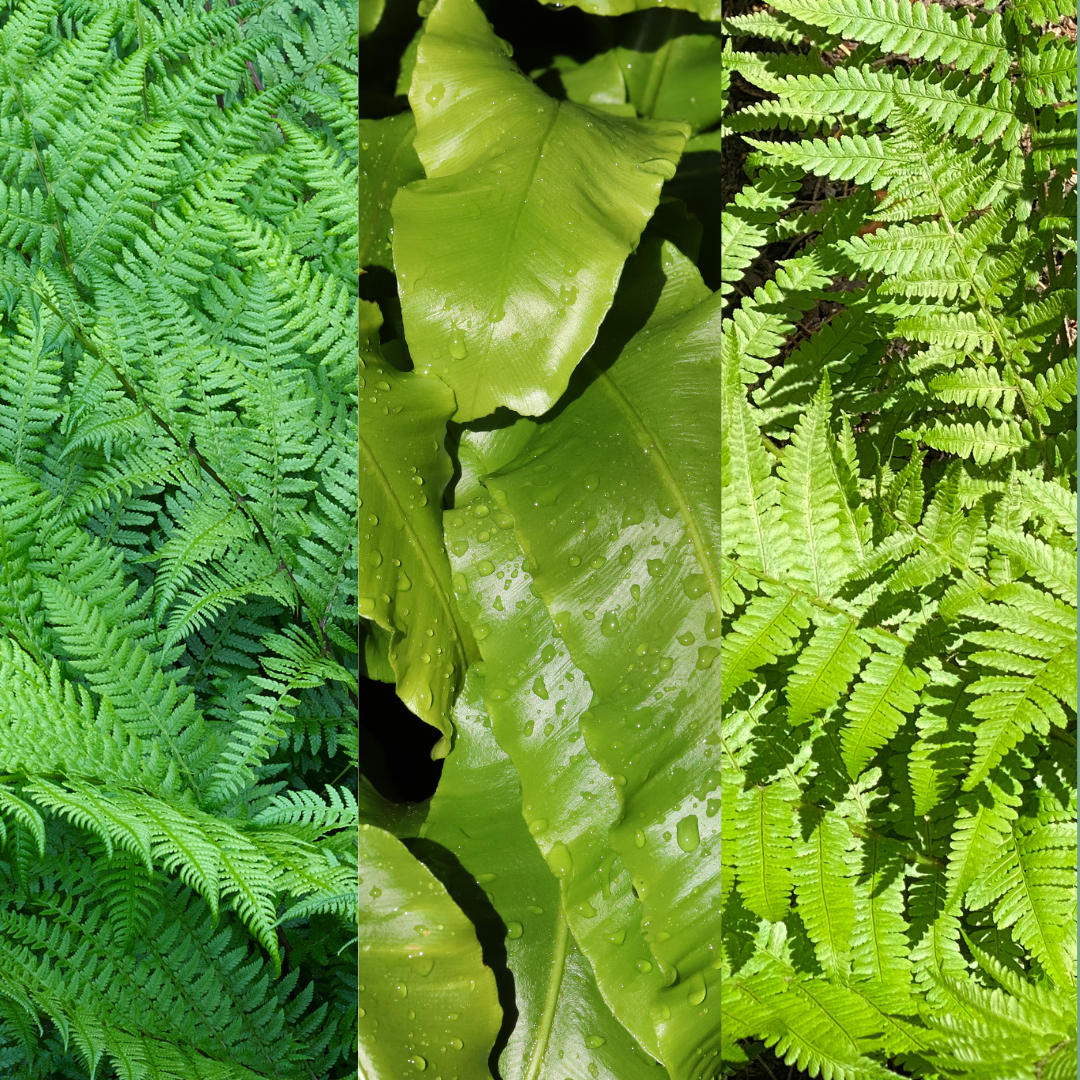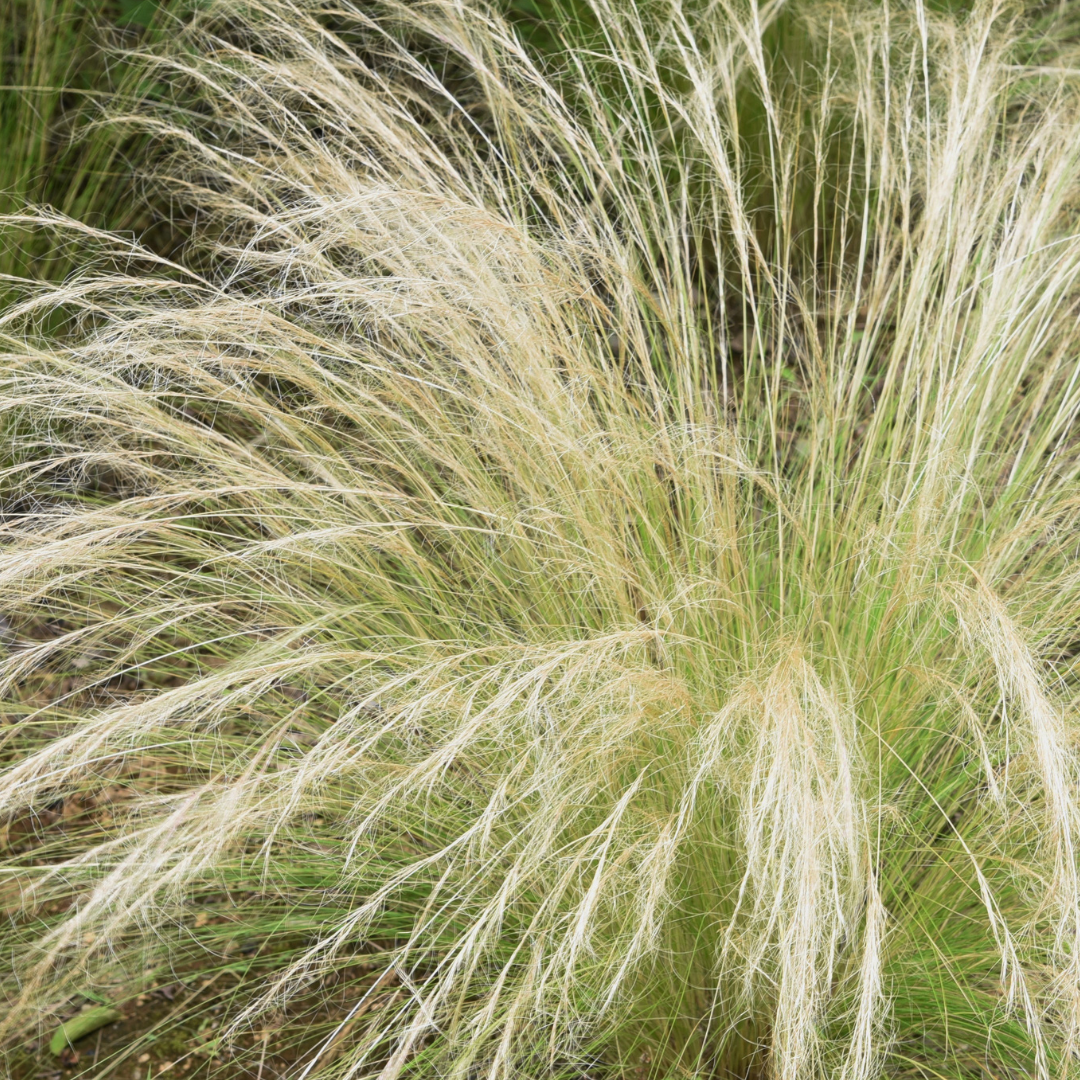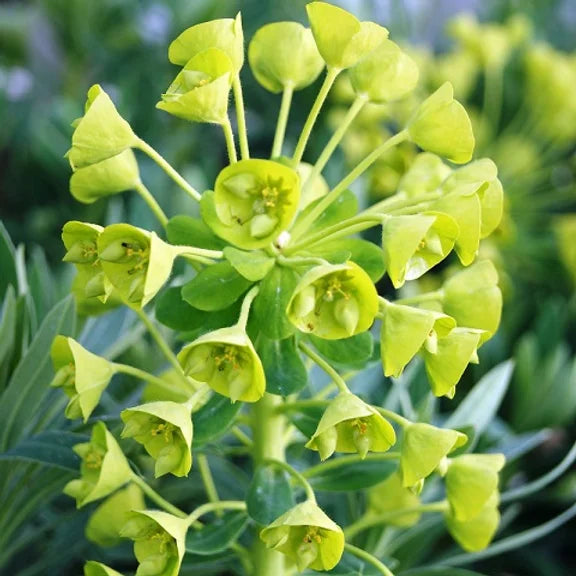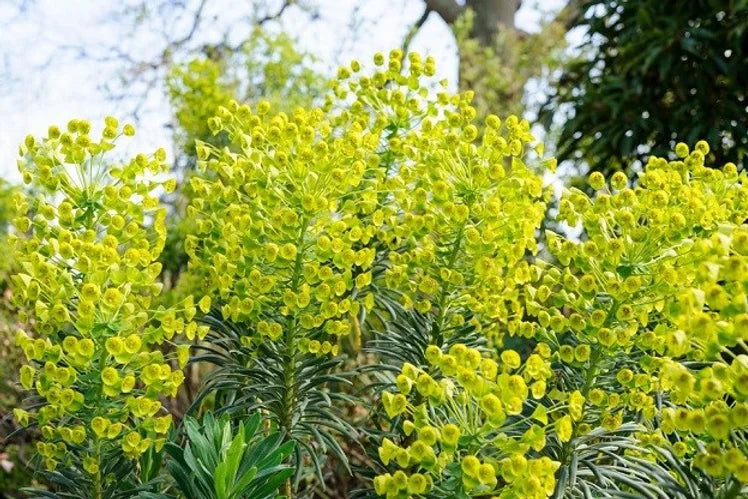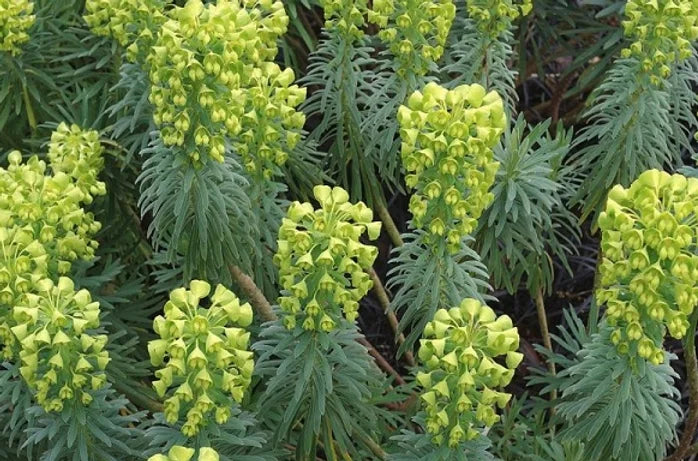This site is protected by hCaptcha and the hCaptcha Privacy Policy and Terms of Service apply.
Large, dome-shaped, lime-yellow flowers are produced on towering spikes high above the foliage from March to May. This is a stunning, architectural, evergreen perennial with smooth, upright, purplish-green stems that are well foliated with attractive, fleshy, blue-green leaves.
Combining well with the bright red and orange blooms of kniphofias, it's perfect for adding a touch of drama to the border and makes a great plant for incorporating into herbaceous or contemporary plantings. Growth can be rejuvenated by either cutting it back hard or lifting and dividing congested colonies every few years in late autumn or early spring.
Size: 2 Litre potted plant
Position: full sun
Soil: light, well-drained garden soil
Rate of growth: fast growing
Flowering period: April to July
Hardiness: fully hardy
This handsome euphorbia has upright stems clothed with whorls of fleshy, glaucous leaves and topped with huge heads of chartreuse-green flowers with bronze 'eyes' from March to May. The Edwardian garden designer Gertrude Jekyll described this sun-loving, evergreen shrub as 'one of the grandest of plants'. Euphorbia characias originates from the Mediterranean, where it is found on dry rocky slopes and scrubland, so it is very tolerant of drought once it becomes established. It forms a natural rounded shape, and brings structure and an architectural quality to the garden. A tall mainstay of the traditional herbaceous border, it's equally at home in a contemporary minimalist or gravel garden. It may self-seed, but plants rarely come true from seed.
Garden care: Each stem is biennial, so will produce leaves in its first year and flower in its second. Once the stem has produced a flower it should be cut right back to its base, or to a point where there is new growth emerging, in midsummer. This will make way for lots of new, fresh shoots. When working with spurges always wear gloves since the milky sap is poisonous and a potential skin irritant. Remove seedlings as they appear.
As with all woody plants, plant high, exposing as much of the taper at the base of the trunk as possible. Allowing soil to accumulate round the base of a tree can be fatal. Keep very well watered
CAUTION toxic if eaten/skin & eye irritant

